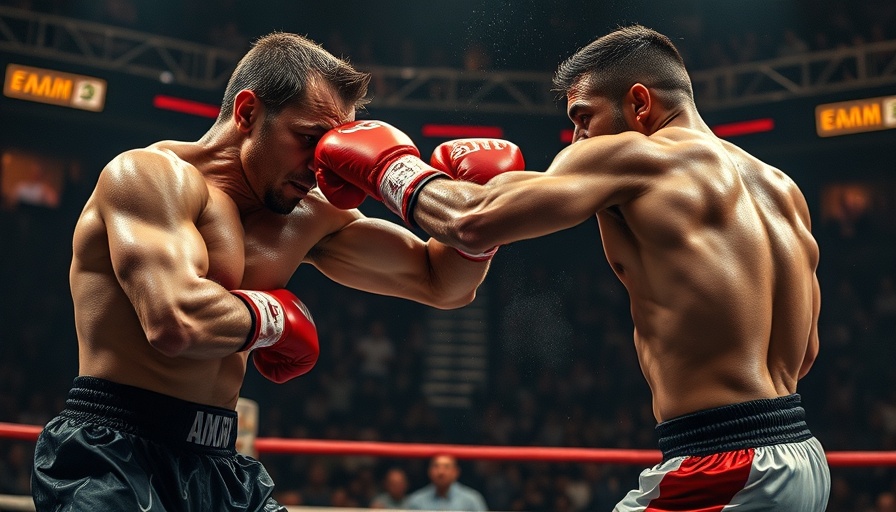
Julio César Chávez Jr.: From Boxing Fame to Legal Troubles
Julio César Chávez Jr., a well-known Mexican boxer, has suddenly found himself in the spotlight for reasons beyond the ring. The 39-year-old fighter was arrested by U.S. Immigration and Customs Enforcement (ICE) for overstaying his visa and allegedly providing false information on a green card application. This event comes shortly after his recent loss to influencer-turned-boxer Jake Paul, raising eyebrows about the timing of the arrest.
Witnesses reported that Chávez was picked up while riding a scooter outside his residence in Studio City, California. His attorney, Michael Goldstein, voiced strong opposition to the nature of the arrest, calling it an “outrageous” attempt to intimidate the community. This sentiment resonates with many in Southern California, where immigration enforcement actions have intensified, alarming local residents and prompting protests about the government's tactics.
The Context of Immigration Enforcement in Southern California
The recent arrest highlights ongoing tensions surrounding immigration enforcement in the region. Many residents feel the pressure as federal agents increase operations, often targeting individuals without legal standing. Amid this backdrop, the presence of National Guard and U.S. Marines in downtown Los Angeles signifies a heightened state of alert and community concern over immigration policies.
A Family's Support Amidst Controversy
Chávez's family has publicly defended him, expressing their confidence in his innocence and urging the authorities to conduct their investigation without outside pressure. This family connection tends to evoke a shared sense of humanity that many readers can relate to, especially those from immigrant backgrounds. The family's statement is not only a plea for understanding but also a reminder of the power dynamics at play when legal troubles collide with personal stories.
Reflections on the Career of Chávez Jr.
Chávez Jr. has a tumultuous history in boxing, being the son of one of Mexico’s most celebrated athletes. He has faced numerous challenges, including struggles with addiction and legal issues like a past DUI conviction and recent gun charges. His career, marred by personal setbacks, often contrasts sharply with his father's legendary success. Many sports fans can admire his courage to step into the ring, especially after such a long absence from competitive fighting.
Future Implications and Community Reactions
As Chávez navigates these legal troubles, there are wider implications for athletes who face similar circumstances under U.S. immigration laws. The case serves as a potent reminder of how fame does not ultimately shield anyone from legal accountability. Members of the community have responded with mixed feelings—some showing support for Chávez as a beloved athlete, while others compel him to face the state’s legal processes. This dynamic reflects a broader societal challenge as public figures grapple with personal and societal expectations.
 Add Row
Add Row  Add
Add 



Write A Comment